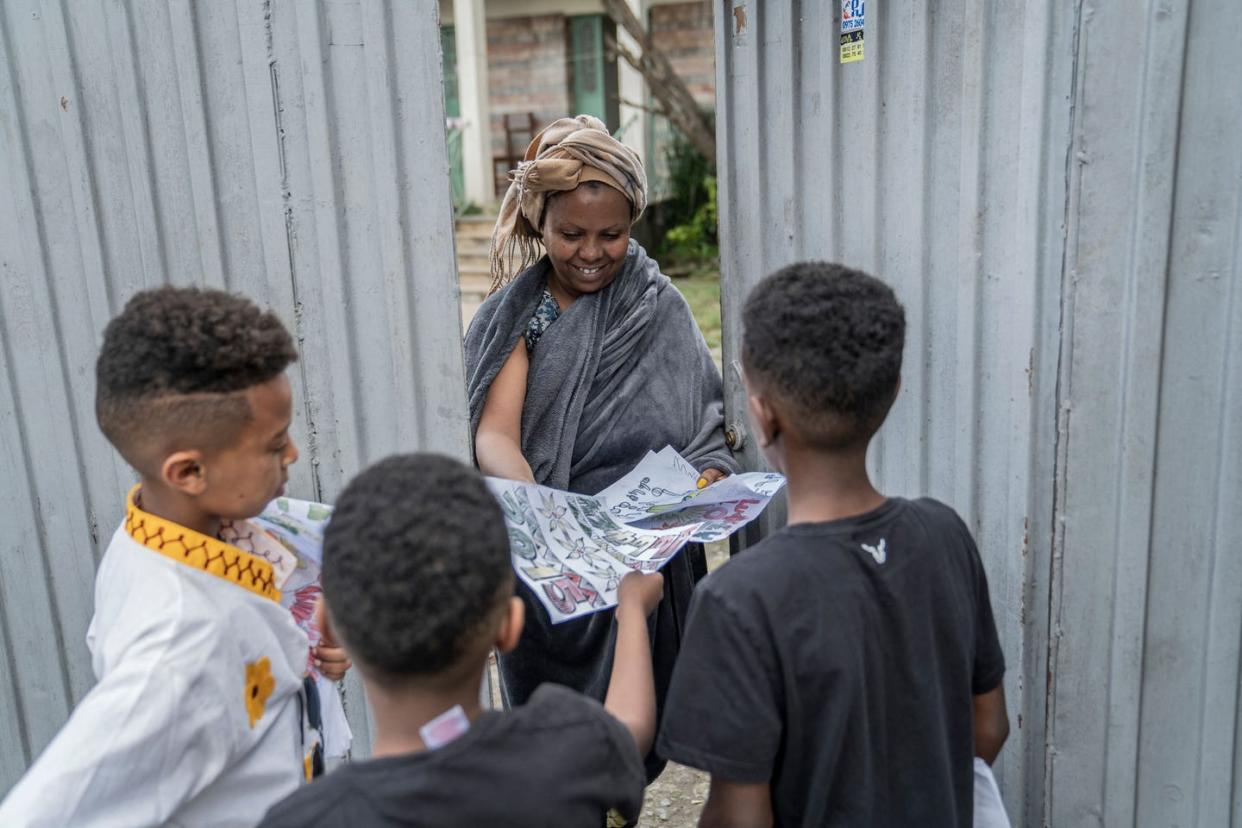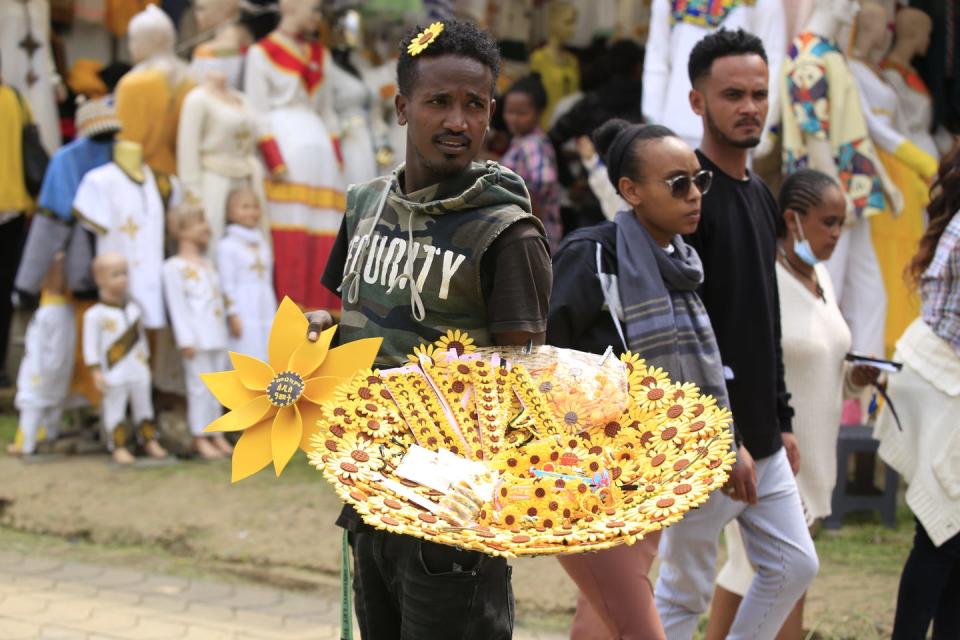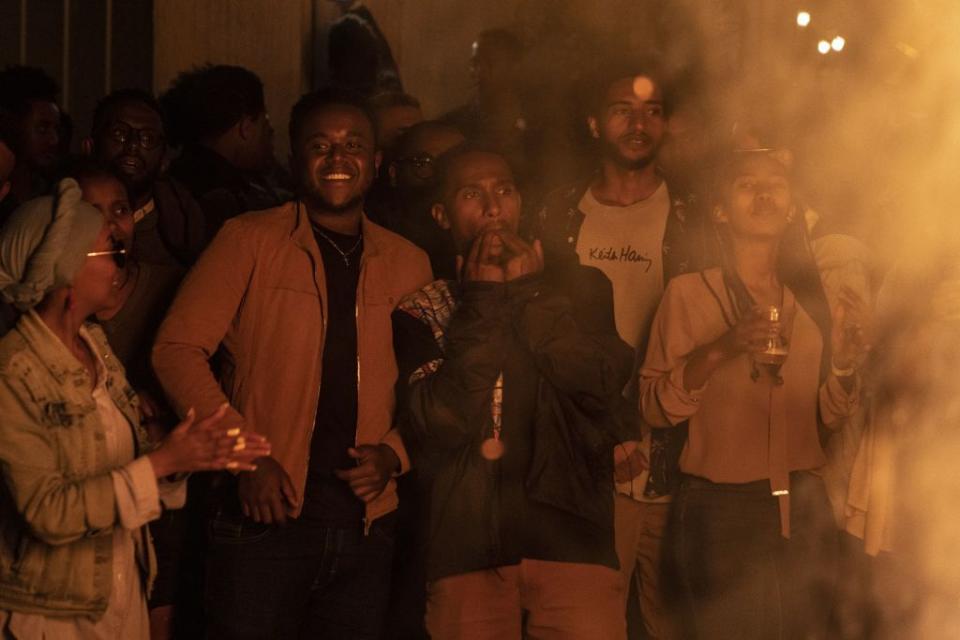Everything to Know About Enkutatash, the Ethiopian New Year

The beginning of a new year is a time where people reflect on the past and look forward to what's next. In the African countries of Ethiopia and Eritrea, the New Year's celebration is called Enkutatash.
"It’s an extremely inspiring, festive, heart-warming, and hopeful time of the year in Ethiopia," says Susie Geda, the owner of BIBO Salon. She was raised in Addis Ababa, Ethiopia.
The Ethiopian New Year has a rich cultural history dating back to the days of Queen Sheba. In fact, the holiday's name is derived from a story about Queen Sheba's return to Ethiopia after a visit to King Solomon. Today, Enkutatash is celebrated by Ethiopians and Eritreans across the world with music, special meals, family gatherings, and unique traditions. Children play a special role in the holiday, going door-to-door offering songs and paintings in exchange for money or small gifts.
Although you might expect New Year's celebrations to take place at the end of December, Enkutatash actually takes place in September due to the nation's Julian calendar system. We've got all the details on why Enkutatash happens in September and what date people will be celebrating the holiday this year.
Keep reading to learn all about the Ethiopian New Year, from the meaning of "Enkutatash" to how people celebrate it today.
What is Enkutatash?
"Enkutatash, which can be translated as 'gift of jewels,' marks the end of the rainy season and the beginning of a new year according to the Ethiopian calendar," says Geda. "As such, it is a celebration of renewal and hope. Bright yellow flowers blanket the landscape, symbolizing a new cycle of life and prosperity."

Enkutatash is the Ethiopian New Year, but unlike New Year's celebrations in many other parts of the world, it doesn't take place on December 31.
When is Enkutatash?
"The history of Ethiopian New Year is deeply rooted in the country's unique Julian calendar system, which is approximately seven years and eight months behind the Gregorian calendar," explains Geda. "This difference in time calculation explains why the Ethiopian New Year falls on September 11 or 12 in the Gregorian calendar."
This year, Enkutatash falls on September 12, 2023.
History of Ethiopian New Year
"On this day, Queen Sheba returned to Ethiopia from a trip where she visited King Solomon and they celebrated her return by gifting her jewels," explains Kanessa Muluneh, Ethiopian refugee and founder of MULU LOVE.
In the Bible, Queen Sheba visits King Solomon to ask for his wisdom and brings with her "camels carrying spices, large quantities of gold, and precious stones." In addition to answering all of her questions, Solomon also gave Queen Sheba many valuable gifts to take back to Ethiopia with her.
Enkutatash Meaning
Enkutatash translates to "gift of jewels" in Amharic, which is the official language of Ethiopia. This is thanks to the history of the holiday, in which Queen Sheba was gifted jewels upon her return. It's also meaningful in the sense that it's a new start to the year, which is a time often associated with hope, gratitude, and positive change.
How is Ethiopian New Year celebrated?

"Enkutatash is celebrated widely throughout the country but also by Ethiopians and Eritreans outside of their country, like myself and my children," says Muluneh. "From my experience, the holiday goes together with lots of music, alcohol, food, and fun, all in traditional wear."
Geda explains that where she grew up in Addis Ababa, the day started with a special breakfast at home, where fresh-baked bread was a must. The whole family would wear new clothes to symbolize the start that the new year brings. Later, they would visit her maternal relatives for a lunch of traditional Ethiopian foods and the "iconic Ethiopian coffee ceremony." Later in the day, the festivities would continue at her paternal relatives' house. "It was a day of unity, enjoyment, and anticipation of the new beginnings that the New Year promised," she says.
Other traditions can include girls going from house to house singing a traditional song called "Abebayehosh" and boys going house to house offering paintings. In exchange, the children are offered money as a gesture of gratitude. Children might also prepare a bouquet of flowers to give to their parents.
Another tradition is for families and neighbors to light bonfires once it gets dark. People sing and dance around the fire and share good wishes for the upcoming year.
You Might Also Like

